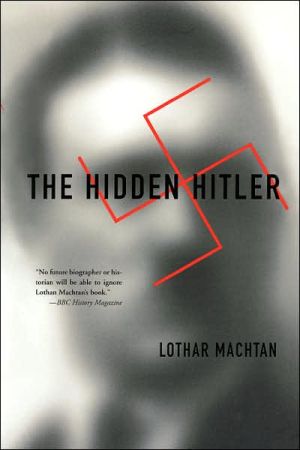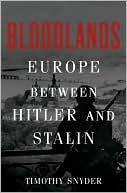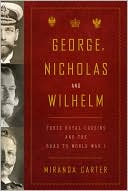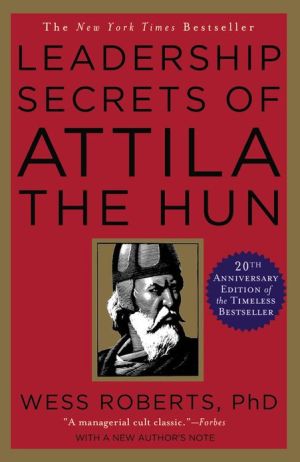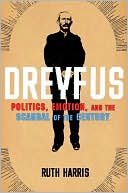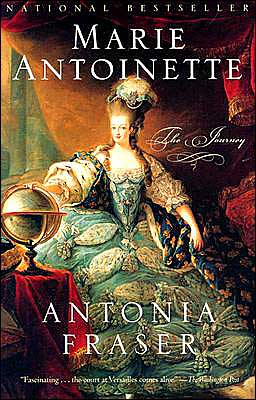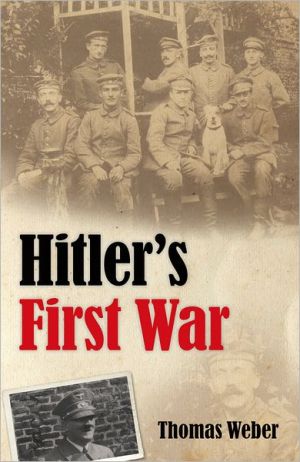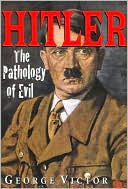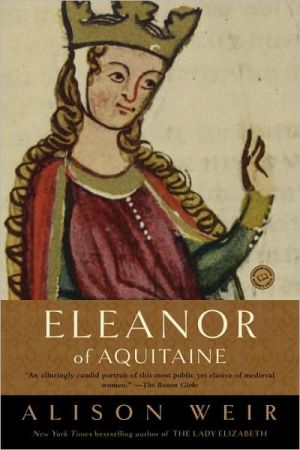Hidden Hitler
Lothar Machtan makes a compelling case that Adolf Hitler was homosexual, and that one cannot begin to understand him, his entry into politics, and the early Nazi movement without a clear understanding of this aspect of his identity. Recent books on the Nazi movement have argued that the Third Reich was a fundamentally sordid regime. Machtan provides powerful new evidence in support of this view. This side of Hitler and his "Munich clique," as Goebbels put it, has never been so vividly evoked....
Search in google:
A fast-paced, brilliantly researched exposé of the homosexuality of Hitler and his entourage
The Hidden Hitler \ \ By Lothar Machtan Basic Books \ Copyright © 2002 Lothar Machtan\ All right reserved.\ ISBN: 9780465043095\ \ \ \ \ Chapter One\ \ \ The Would-be Aesthete:\ Hitler, 1905-1914\ \ \ \ IN his youth Hitler imagined himself destined for higher things: he aspired to be an artist, not a civil servant or clerk. Despite this firm resolve, however, he drifted along aimlessly between his sixteenth and twenty-fifth years (between 1905 and 1914) and could at best be described as a pseudobohemian. Our knowledge of this period in his life is sketchy. Although it is possible to reconstruct certain contexts and events, Hitler's early life remains singularly obscure.\ Here is what we do know. In June 1905 Hitler's mother, who had been a widow since 1903, sold the family home in Leonding. Together with her two children, Adolf and Paula, and her sister Johanna Pölzl, nicknamed "Hanitante," she moved to 31 Humboldtstrasse in nearby Linz. At this time, sixteen-year-old Adolf was still attending the junior high school in Steyr, some fifty miles away, where he lodged during the week. Armed only with a poor report card for the year 1904/5 and no diploma, he quit school and returned to his family. It was at Linz's Landestheater in the latter part of 1905, when he was living in the town full-time, that he met an apprentice decorator named August Kubizek, whowas then seventeen. The two youngsters became close friends.\ In May 1906 Hitler paid his first visit to Vienna, where he stayed for at least two weeks. A year later the family moved from Linz to Urfahr on the other side of the Danube. Early in September 1907 Hitler paid Vienna another visit to sit for a place at the Academy of Fine Arts. Although he passed the first part of the examination, he failed the drawing test at the beginning of October. Deeply disappointed, he returned to his mother, who was terminally ill with cancer and already bedridden. She died just before Christmas. In February 1908, having settled her estate, he moved to Vienna for good. At eighteen, he had an inheritance of around 1000 crowns and an orphan's monthly pension of twenty-five crowns.\ He was followed not long afterward by his friend August Kubizek, who was now studying music, and they both moved into a room let to them by a Frau Zakreys at 31 Stumpergasse, where Hitler had stayed during his second trip to Vienna. They lived together for some four months. Then, at the end of the academic year, Kubizek rejoined his parents in Linz, where he spent the summer. He received several postcards and letters from Hitler, the last of them at the end of August, when the latter was staying in Waldviertel with "Hanitante." Back in Vienna in September, Hitler made another attempt to get into the Academy of Fine Arts, but was this time denied admission even to the drawing test. On November 18 he quit the room in Stumpergasse and moved, describing himself as a "student," to nearby Felberstrasse, where he lived for nine months until August 20, 1909. Two days thereafter, this time registered as a "writer," he moved into new lodgings at 56 Sechshauser Strasse, which was also in the vicinity of the Westbahnhof. Less than four weeks later, on September 16, 1909, he moved from there to "address unknown."\ There is no official record of Hitler's whereabouts during the next five months. He clearly had no fixed abode before moving into the Meldemannstrasse men's hostel in the Brigittenau district on February 9, 1910, but it is likely that he spent some time at the hostel for the homeless in Meidling. It was there, too, that he probably made the acquaintance of Reinhold Hanisch, five years his senior, with whom he maintained close contact in the ensuing months. The two of them developed a kind of business partnership: Hitler painted postcards and pictures, and his friend Hanisch endeavored to sell them. Before long, however, Hanisch acquired a competitor in the shape of a secondhand dealer named Josef Neumann. Hitler and Hanisch fell out because the latter had allegedly embezzled some of their joint proceeds, an offense that found its way into police records and earned him a spell in prison.\ In the spring of 1911 Hitler's financial situation changed for the worse: his orphan's pension had been reassigned to his now widowed half sister, Angela Raubal. He was now entirely dependent on his own earnings and remained so for a good two years. In May 1913, by which time he had turned twenty-four, he came into 820 crowns from his late father's estate. He thereupon left Vienna accompanied by Rudolf Häusler, who was nearly five years younger, and moved to Munich, where they rented a room at 34 Schleissheimer Strasse from a tailor named Popp. Hitler had failed to do his military service in Austria, but the authorities tracked him down in Munich, and in January 1914 he was interviewed by the police. After sundry bureaucratic arguments he was obliged to report for duty at Salzburg early in February, but was found to be "too frail" for military service, was pronounced unfit and was permitted to return to Munich. On February 15, 1914, Häusler moved out of their shared room but continued to live in Hitler's neighborhood until he returned to Vienna at the beginning of August. At the same time, Hitler volunteered for war service in Munich.\ Of course, none of these particulars, registration forms or court records tell us much about Hitler himself and his private life, nor do the sparse documents relating to him and his friends convey a meaningful picture of them. We are dependent on the oral accounts and memoirs of a few contemporaries, for instance those of August Kubizek dating from 1953, a series of articles by Reinhold Hanisch published after his death in 1939, and an interview given by Frau Popp in 1934. But even these meager forms of testimony are questionable. Closer examination of the circumstances under which they originated soon discloses that none of the above-named was able, willing or at liberty to tell all that he or she knew. We should not capitulate in the face of this problem, however, for the said witnesses definitely had something to impart. They wanted to say something—even if it sometimes conflicted diametrically with the historical truth. This, clearly, is the task facing us: we must extract a coherent picture from our sources, despite their remarkably obfuscatory and/or revelatory nature. The best way to achieve this, I think, is to interpret them with reference to the world of experience one might presume Hitler to have been living in at this period: the homosexual milieu, which then bore a social stigma. I say "one might presume" because of what we do know about the world he inhabited shortly thereafter. If we do adopt this procedure, the blurred outlines of his early years come more into focus.\ \ \ "GUSTL AND ADI"\ \ \ Who Was August Kubizek?\ "The personality of my boyhood friend is like a thread that runs throughout my life." By saying this in 1949, August Kubizek was expressing what his relationship with Hitler meant to him. Four years later he devoted an entire book to the subject.\ August Kubizek was born in Linz on August 3, 1888. After leaving school he embarked on a decorator's apprenticeship in his father's firm, but his real love was music. His friendship with Hitler reinforced this enthusiasm to such an extent that in February 1908, with his parents' consent, he moved to Vienna and became a music student. Having graduated in the fall of 1911, he worked as a conductor at various theaters. In Vienna on September 1, 1914, shortly after the outbreak of war, he married a violinist named Anna Funke, with whom he later had three sons. His career was abruptly cut short by conscription into the army, and in 1918, when he tried to resume his former profession, few satisfactory openings were available. Thus an advertisement for a municipal official's job in the small town of Eferding, near Linz, where Kubizek's mother was now living, could not have been more timely. He obtained the post, although he had no administrative experience, because the authorities were seeking "someone qualified to act as artistic director of the musical society and to attend to cultural matters," so Kubizek was the ideal applicant. In 1926 he became municipal secretary and was three years later promoted to municipal director, a post he retained until 1945. He always felt more of a musician than a public servant, however, and even found it "understandable that, being an artist, I may sometimes be rather liberal in my management of municipal affairs, because, as a musician, I am subject to moods."\ In 1923, fifteen years after they had last seen one another, Kubizek's attention was drawn to his former friend and companion by the front page of the Münchner Illustrierte. Hitler had already attained a certain notoriety, and Kubizek was promptly reminded of the postcards, letters and drawings that bore witness to his former friendship with the party leader. But the time was not yet ripe to hawk them around; for the moment, Kubizek confined himself to following Hitler's career from afar. He did not attempt to get in touch with him for another ten years, when in 1933 he sent him a letter of congratulations. Hitler seemed to be informed about Kubizek's career and current circumstances, because his rather offhand reply sent regards to Kubizek's mother but did not mention his father. Could he have been aware that the latter had died? "I should very much like—when the worst of my struggles is over—to reminisce in person about those happiest years of my life." However, it is doubtful if any such meeting took place.\ But then, in the spring and summer of 1938, Hitler's interest in his old friend suddenly revived. In March, shortly after the annexation of Austria, three SS men from Berlin appeared at Kubizek's door with the intention of relieving him of his Hitler documents. He managed to get rid of them. What Kubizek does not tell us is that he was in trouble in 1938, having been charged with a criminal and disciplinary offense. This may have filtered through to Berlin. In any event, Hitler found time while visiting Linz to meet with him and, no doubt, to discuss his current problems. Kubizek needed assistance, and Hitler did not withhold it. His memoirs merely state that Hitler lectured him on his reconstruction plans for Linz, as he used to in the old days, questioned him about his present circumstances and undertook to finance his sons' music studies at Linz Conservatory. Hitler was clearly anxious to help his former friend. In April 1938 he invited him to the Obersalzburg, and a private visit to Eferding was also planned. We do not know whether these meetings actually took place, but it is certain that Kubizek had a conversation at Linz with Rudolf Hess, Hitler's lieutenant. "I sensed at once that his cordiality was genuine and truly heartfelt." Kubizek had suddenly become of interest to Hitler again, as we can see, and it seems logical to surmise that this sudden interest was connected with the charges pending against him.\ But what were those charges? It transpires from the files of the Upper Austrian provincial government that in May 1938 a subordinate of Kubizek named Franz Neuburger, town clerk of Eferding, had publicly accused his superior in an inn. Neuburger was an avowed National Socialist who had since March 1938 been district treasurer of the NSDAP. He obviously felt powerful enough to pick a fight with Kubizek, who had no party-political affiliations, doubtless in the hope that it would further his own career. But Kubizek defended himself—successfully: in October 1938 Neuburger issued a formal apology retracting his charges. The relevant documents have survived, but certain passages in the one that details Neuburger's original accusations were obliterated: "I hereby declare, quite publicly, that Kubizek has stolen and embezzled money. Kubizek tried to incite me to commit theft. Kubizek is a [word deleted] incompetent official [sentence deleted]. I have already seen to it that Kubizek can no longer gain access to the Führer." Neuburger's surprising retraction states that he had "no grounds of any kind for laying serious accusations and charges against Herr Amtsleiter Kubizek. My remarks to that effect were attributable to a mistaken view of his management of the municipal finances, which was perfectly unobjectionable in terms of criminal law, and partly to incitement." What can account for such a retreat? Had some powerful friend protected Kubizek in the nick of time? The criminal charges were dropped, at all events, and in the spring of 1939 Neuburger applied for a transfer.\ Was there far more to this affair than a charge of embezzlement? Why would passages in Neuburger's statement have been subsequently deleted? Some aspect of his remarks must have been too delicate to remain on file. In July 1938 the deputy mayor of Eferding, Hugo Wanivenhaus, made a statement which suggests that blackmail formed the background to the whole affair: "Kubizek always exerted himself on behalf of his fierce antagonist, and Neuburger actually owed him his whole livelihood." He also stated that Neuburger had told him (Wanivenhaus): "I am going to destroy Kubicek ..., professionally, socially, and in every respect." Neuburger could not have expressed himself so strongly without having something up his sleeve. Wanivenhaus referred to "circumstances that are known and spoken of among the general population," but which he did not wish to go into "here" in greater detail. Kubizek had been harassed by Neuburger for two years.\ All of this has the trappings of a classic case of sexual denunciation, one that might—although Neuburger would never have dreamed it—have cast a shadow over Hitler's past. This certainly would more readily account for Hitler's renewed interest in Kubizek than a charge of having embezzled public money. It is also noteworthy that Hitler invited his boyhood friend to attend the Bayreuth Festival with him in the summer of 1939, not long after the whole affair. Kubizek thanked him in fulsome terms: "My Führer! You alone can appreciate that you have, by your noble generosity, made possible the fulfillment of my life's dearest dream.... With what overwhelming grandeur and glory you have fulfilled the vocation of which you were already fully aware thirty-five years ago. I bow before my Führer's unfathomable greatness! ... I greet you, my Führer, with a profoundly stirred and most grateful heart."\ It is, of course, understandable that a musician and admirer of Wagner should be delighted by the prospect of finally attending the world-famous festival, but even so, this was laying it on with a trowel. Grateful as he must have been for attending Bayreuth, perhaps he was also thanking Hitler for a "generous" rescue operation that had delivered him from an extremely awkward predicament. In 1940 they met at Bayreuth once more and spent some hours together for the last time—another stirring experience from Kubizek's point of view. They never again met face to face, but Hitler kept an eye on his old friend thereafter.\ Kubizek, who had now become quite widely known as "the Führer's boyhood friend," was still in possession of the documents that attested to their friendship. Various Party authorities solicited those mementos, but Kubizek withstood their urgings and refused to surrender his treasure—or at least, not all of it. In April 1940 he joined the NSDAP and was appointed "head of propaganda, cultural director and district administrator" in "Strength through Joy," the Party's recreational organization. In 1943 he produced the first version of his Hitler memoirs at the Party's behest. The same year, probably in return for this, he was promoted by special authority to a higher salary grade. He also received direct subventions from Hitler's privy purse: a single payment of RM 6000 and a regular monthly grant of RM 500—a substantial amount of money in those days.\ As soon as the war ended Kubizek was removed from office by the U.S. authorities and detained for sixteen months. A denazification tribunal classified him as "incriminated," and it was only thanks to the efforts of Franz Jetzinger, a onetime Social Democrat politician who was investigating Hitler's early years in Austria and had come across Kubizek in December 1948, that he managed to secure "less incriminated" status. This led to his reinstatement, followed immediately thereafter by his retirement. So Kubizek had indirectly benefited once again from his former friendship with Hitler. Jetzinger's help should be regarded as a form of recompense for the information Kubizek had given him for his projected book about Hitler's youth. In the fall of 1953, three years before his death, Kubizek published a book of his own: Adolf Hitler. Mein Jugendfreund.\ \ \ Kubizek's Hitler\ What did Kubizek have in mind when he resolved to write a book about his relations with Hitler? It certainly seems to be conceived as more a novella or novel than as a sober factual account. Perhaps he believed that only such an approach could fittingly portray the destiny of his friend, "this unique human being." He did, in fact, have a very definite exemplar in mind: Schwammerl. Ein Schubertroman (1910) by the German-Austrian regional author Rudolf Hans Bartsch. This book tells of the composer Franz Schubert; of the tribulations to which his superabundance of talent gave rise; of his hectic, extravagant lifestyle; of his rapturous and despairing love for women; and, last but not least, of the intimacy of the friendships with his own sex in which "Schwammerl" continually sought refuge and consolation. There is, for instance, a long scene in which Franz Schubert the musician and Moritz von Schwind the painter dream of a relationship akin to marriage. The novel is written in a cloyingly sentimental style, and the allusions in its erotic passages are discreet but unmistakable.\ Another reason why Kubizek followed Bartsch's example was that he wanted to show Hitler in a different light and divest him of his "mask." His old friend was once more to be perceived as a human being and "a unique phenomenon in the history of the German people." As he emphasized to Jetzinger: "After all, Napoleon also ended his days in exile even though he was one of his nation's greatest men. The truth rendered perception triumphant. One day it will be the same with Adolf Hitler." Despite the crimes for which Hitler was responsible, therefore, Kubizek's faith in him remained unshaken and his love for him intact. He had something on his mind—something he wished to tell posterity about the friend of his youth. It is this desire on Kubizek's part that should govern our perception of him as a contemporary source and prompt us to take him seriously.\ \ \ ________\ "From the outset, my friendship with Adolf Hitler bore the hallmark of the unusual," writes Kubizek, who adds that it was positively "singular" in character. And indeed, his book describes a relationship far from typical of adolescents from a lower-middle-class background. We encounter two young men who are united by their fervid enthusiasm for Richard Wagner's music, who go to the theater together, roam the streets of their hometown and undertake long excursions into its charming rural environs. But they are very different in spite of their common interests. Hitler assumes the role of a didactic soliloquist, whereas Kubizek, fascinated by his friend's high-strung personality, contents himself with the role of a patient listener. He regards Hitler as an imaginative, intelligent, inquisitive person, but one who also has an erratic, impulsive, irascible side—a picture that fully accords with the notion of an artistic nature transcending bourgeois conventions. Kubizek portrays himself as Hitler's intellectual inferior, a somewhat meek youth utterly subservient to his admired companion. Many have pointed to this imbalance in their relationship and concluded that it was not a true friendship. According to them, naive Kubizek served only as a receptacle for egocentric Hitler's ceaseless flow of words. It was Kubizek himself who supplied this interpretation with an apt catchword by referring to the "instrumental" nature of their friendship.\ Looking more closely, however, we discover something that has hitherto been blithely ignored: an emotionally charged and thoroughly reciprocal relationship. In spite of their dissimilarity the two youths persistently sought each other's company—and found the "intimacy" and "profundity" to which Kubizek expressly refers. He speaks of true affection, mutual understanding and great empathy. Although his usually egocentric and dominant friend "clung doggedly to his own point of view," he could also "be so considerate that he often made me feel ashamed." Kubizek even concludes: "By God, no one on this earth, not even my mother, who loved me so dearly and knew me best of all, could express my secret desires as unexpectedly as my friend." The erstwhile "theater acquaintanceship" had swiftly "become transformed into a profound, romantically transfigured friendship."\ Hitler watched jealously over Kubizek "because I cannot endure it when you consort and converse with other young people." He could never bear the idea that Kubizek "was interested in other people beside my friendship with him." What always mattered to him in this respect was "absolute exclusivity." Such language would do justice to a love affair. In February 1908, when Hitler traveled to Vienna a few days before Kubizek, he urged his friend to join him as soon as possible: "Am already eagerly awaiting news of your arrival. Write soon and definitely, so that I can make all the arrangements for your ceremonial reception. All Vienna is waiting. So come soon. Will naturally meet you." Kubizek's verdict on this postcard was that Hitler had felt terribly lonely in Vienna without him: "The 'eagerly' in the opening sentence is surely meant in earnest. The fact that he repeats the 'Come soon' in the form 'Again, please come soon!' proves how much he was looking forward to my arrival."\ When Hitler penned those lines he could hardly wait for the dream he and Kubizek had cherished for so long to come true: a life of fulfillment as a pair of artists living in the Austrian capital. In Linz they used to long for a lottery win to make their dream of such a twosome possible. They pictured themselves setting up house together, and Hitler had already furnished the apartment in his mind's eye. He himself wanted to become an artist draughtsman, whereas Kubizek would at last be able to pursue his musical bent. They planned long trips in the summer, their primary objective—of course—being Bayreuth. They wanted to be a couple, outwardly as well: so that everyone would think they were "brothers" they proposed to wear the same clothes on the street.\ \ \ Continues...\ \ \ \ Excerpted from The Hidden Hitler by Lothar Machtan Copyright © 2002 by Lothar Machtan. Excerpted by permission.\ All rights reserved. No part of this excerpt may be reproduced or reprinted without permission in writing from the publisher.\ Excerpts are provided by Dial-A-Book Inc. solely for the personal use of visitors to this web site. \ \
